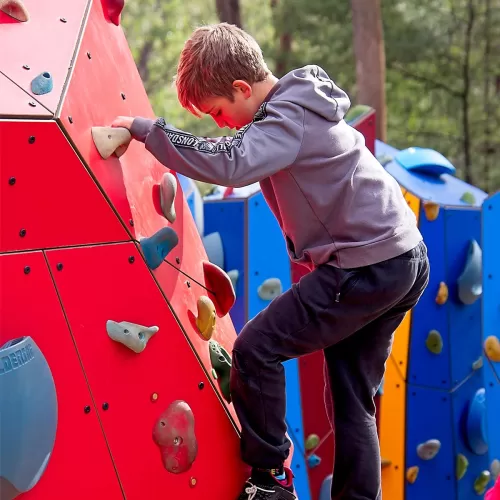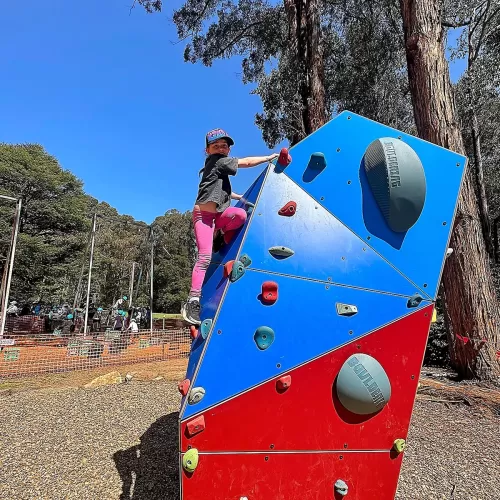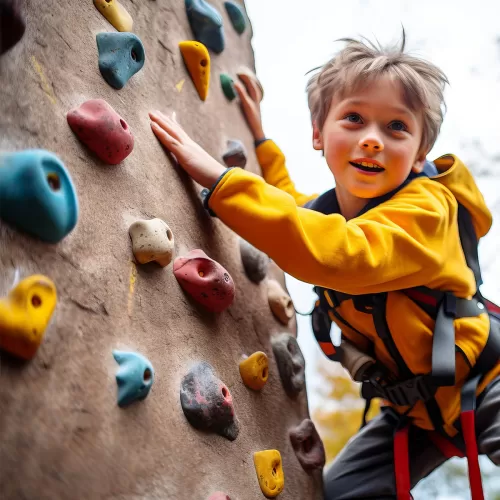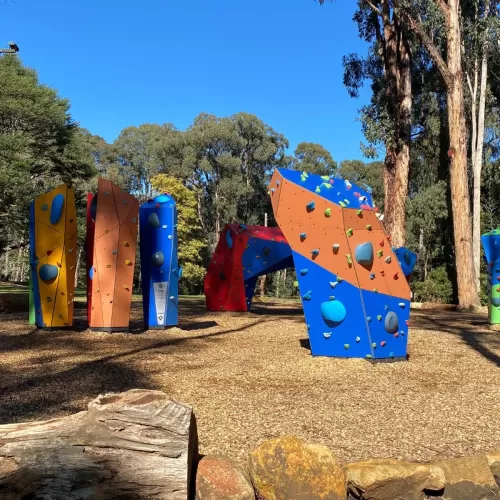Bouldering is an exhilarating and physically engaging activity that has gained popularity as an exciting option for school excursions. Unlike traditional rock climbing, bouldering involves climbing short, yet challenging routes on artificial or natural rock formations, without the use of ropes or harnesses. It provides a unique and inclusive experience that caters to various skill levels, making it an ideal choice for school groups.
Educational Benefits:
Physical Fitness
Bouldering is an excellent full-body workout that improves strength, flexibility, and cardiovascular health. It encourages students to use their muscles in different ways, promoting overall physical well-being.
Problem-Solving Skills
Bouldering routes, known as "problems," require participants to strategize and plan their ascent. Students learn to analyse the route, identify holds, and adapt their approach, fostering critical thinking and problem-solving skills.
Teamwork and Communication
Bouldering often involves group dynamics as students work together to conquer challenges. They learn to communicate effectively, provide encouragement, and collaborate to solve problems, fostering teamwork and interpersonal skills.
Overcoming Fears and Building Confidence
Climbing without ropes can be initially intimidating, but successfully completing a bouldering problem instills a sense of accomplishment and boosts self-confidence. Students learn to manage fear, take calculated risks, and persevere through challenges.







